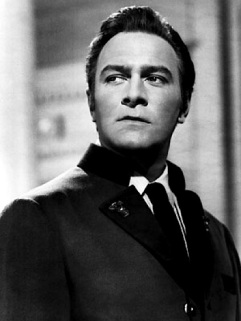As most are aware, the Supreme Court of the United States recently legalized same-sex marriage across the entire nation. . . This writing is not about how I feel about the opinion of five unelected officials beat the opinion of four other unelected officials and became national law. It is not really even about my feelings on same-sex marriages. It is about religion.
I have been reading the posts and articles of many people over the past week and hundreds of comments on those posts. Some of them struck a cord with me that has resonated through the night and prevented sound sleep until I can respond to them. Though the opinions in the comments were expressed by a sole individual, I fear that many others have similar unexpressed thoughts. This gives me cause for concern.
Full disclosure: I am a member of the Church of Jesus Christ of Latter-Day Saints (Mormon, or LDS). I completely support the doctrine contained within this church and sustain it’s leaders. However, I hope that my addressing this issue resonates true for all religious persons and that the logic can be followed by all persons, religious or not.
The Existence of a Supreme Being
In one thread of comments on an article posted by a state-wide news agency that pertained to both the SCOTUS Marriage decision and The Church of Jesus Christ of Latter-Day Saints, one person posited what I’ll call “The What-If Idea.” I do not know this persons religious affiliation, but the idea is sound. It simply asks the reader to consider the effects of a scenario contrary to one’s own perspective. Their question was simple, “What if [The Church of Jesus Christ of Latter-Day Saints] is really the true church of God?” To which another responded something along the lines of, “There is no God. . . I know, because I have proof.”
Proof? Granted, I’m no religious expert, I’m fairly young, and know only a little about a few things in general, but proof that God does not exist? That’s quite the statement, and I am sure that there are a lot of people out there that would love to see such proof. But, here’s the thing, I would not feel comfortable claiming that there is absolutely no God until I knew everything there is to know, pertaining to both past, present, and future. Encompassing all that humankind now knows and is yet to discover. Because, unless I knew EVERYTHING there is still the what-if. It takes a lot of hubris to submit that you know more than all who have ever lived and can state absolutely that a supreme being is a myth. There is still too much that we have to theorize about to make such a claim. I can no more prove to you that God does exist than you can prove to me that He does not. In an attempt to do so, both of us would likely submit circumstantial or anecdotal evidences that ring true to us due to observation bias, nothing more.
Fortunately for me, my religion does not require physical proof that God exists, just faith, or trust if you will. What if I live my life having faith that God exists and in a manner that I think is pleasing to Him, and I then I die and there is no God? I lose nothing, for I will simply cease to exist. Thus, as long as I am pleased with my mortal life within a theistic realm, I lose nothing.
What if we consider Atheism as a religion based on the foundation that God does not exist but when we die we discover that He did exist? We would therefore ignore such mythical teachings as those found in theism during our mortal life and run the risk of that God disapproving of such a lifestyle.
It seems rather important to know which is actually true, but unfortunately, the poster of such statement made no attempt to provide the evidence further down the thread, they made the claim and then abandoned it. Nevertheless, I think my odds are better by believing and living as if there is a God than if there is not.
Who Cares?
Well, apparently at least one other person does because in another comment thread there was this:
“You can be gay and be happy, you can be lesbian and be happy or you can be Mormon. I choose to be happy. To me it is more important to be happy than it is to be right.”
That’s interesting, but, first things first, I am a Mormon and I am happy. So, just to clarify, you can be Mormon and be happy as well.
Secondly, the average person probably lives to be something like 75 years old. In believing that there is no God one must make the most out of those 75 years, one must live in whatever manner necessary to obtain all the pleasure possible in such limited time. Such hedonism will no doubt lead to disappointment because no person will experience pleasure and pleasure only during their lifetime. This, beside the fact that in pursuit of pleasure it becomes much more easy to justify behaviors that religion deems immoral. Think: rape (it must be pleasurable for at least one party or it wouldn’t happen), murder (how pleasurable it would be to take out the people that you hate the most), taking illegal substances (that high must feel good or else people wouldn’t want to do it), and so on. Granted, these are extreme examples and just because someone professes to be Atheist does not mean that they have no conscience whatsoever. There are many who would still abide the realm of legality for their country.
The only problem with moral relativism (morality defined by a single person or by law) is that human behavior would undoubtedly sink down to the level of the law of the land. If it is not illegal to participate in risky behavior there is nothing preventing one from participating in it. With morality defined by a supreme being, the laws of the land do not dictate what a person deems acceptable behavior. Often within the doctrine of the LDS church the standard for acceptable behavior is above what the law allows. For example, from a recent press release from The Church of Jesus Christ of Latter-Day Saints following the SCOTUS decision that illustrates this point:
“The consumption of alcohol, while contrary to God’s law, is legal in most nations of the world, but the physical and social toll for doing so is a painful matter of record.” (http://www.mormonnewsroom.org/article/top-church-leaders-counsel-members-after-supreme-court-same-sex-marriage-decision?cid=HP_TU_6-30-2015_dPAD_fMNWS_xLIDyL1-A_)
Suppose again that theism is correct and that this life is not all that there is to our existence. Seventy-five years pales in comparison to eternity. With time stretching out without end our mortal life becomes a blip in the continuum. Why would worry so much about pleasure-seeking during my mortal life when I have eons waiting for me if I follow God’s laws? Perhaps, I will not be as comfortable as an hedonist, I suppose I will suffer some adversity throughout my 75 years here, perhaps some of that adversity comes as a result of my own human and hedonistic tendencies and perhaps some comes as a consequence of the behaviors of others. But, in the grand scheme of things, these 75 years are like a millisecond of my existence. It just takes a different perspective than the one we live in at the moment.
Opinions (from this point on it starts to get a little political, just fair warning)
Everyone is entitled to their opinion, and the aforementioned is mine. It is interesting that when one expresses an opinion that differs from their own they are often labeled as a bigot and persecuted because of it (something one will find a lot of in comment threads). It is also interesting that some people demand their opinions be respected while they disrespect another’s opinion (something else one will find a lot of in comment threads). Again, from such a thread regarding The Church of Jesus Christ of Latter-Day Saints’ stance on same-sex marriage:
“Hey, do whatever they want. . . But as soon as they start trying to change laws based on their beliefs, then that is when they’ve stepped too far.”
Isn’t this exactly what got the SCOTUS decision in the first place? Isn’t it because the opinions of some demanded that they were respected and therefore changed a law based on that belief? If I recall, it was a 5-4 decision in favor of same-sex marriage. Five opinions, against four opinions. Plus, on the morning of the day that the decision was issued, it was the opinions of the citizenry of 14 states that same-sex marriage should not be allowed and yet, by the afternoon another’s opinion was changed into law.
At one point, the United States was a country ruled by the majority of it’s citizenry. A majority belief decided the direction the policies and laws of this country were headed. In recent years it seems to have become a nation ruled by minority beliefs that are yelled loudly enough and long enough to confuse the lawmakers and leaders along with many other members of society.
Final Thoughts
“Changes in the civil law do not, indeed cannot, change the moral law that God has established. God expects us to uphold and keep His commandments regardless of divergent opinions or trends in society” (First Presidency letter on “Same‐ Sex Marriage,” January 9, 2014, http://www.mormonnewsroom.org/article/top-church-leaders-counsel-members-after-supreme-court-same-sex-marriage-decision?cid=HP_TU_6-30-2015_dPAD_fMNWS_xLIDyL1-A_).
“Understand well what this dissent is about: It is not about whether, in my judgment, the institution of marriage should be changed to include same-sex couples. It is instead about whether, in our democratic republic, that decision should rest with the people acting through their elected representatives, or with five lawyers who happen to hold commissions authorizing them to resolve legal disputes according to law.” (Chief Justice John Roberts, http://www.nationaljournal.com/domesticpolicy/marriage-same-sex-gay-supreme-court-dissent-20150626).
“States are free to adopt whatever laws they like, even those that offend the esteemed Justices’ reasoned judgment.” (Justice Antonin Scalia, http://www.nationaljournal.com/domesticpolicy/marriage-same-sex-gay-supreme-court-dissent-20150626).
“This distortion of our Constitution not only ignores the text, it inverts the relationship between the individual and the state in our Republic. I cannot agree with it.” (Justice Clarence Thomas, http://www.nationaljournal.com/domesticpolicy/marriage-same-sex-gay-supreme-court-dissent-20150626).
“Even enthusiastic supporters of same-sex marriage should worry about the scope of the power that today’s majority claims . . . Today’s decision shows that decades of attempts to restrain this Court’s abuse of its authority have failed. ” (Justice Samuel Alito, http://www.nationaljournal.com/domesticpolicy/marriage-same-sex-gay-supreme-court-dissent-20150626).
“At present, no one—including social scientists, philosophers, and historians—can predict with any certainty what the long-term ramifications of widespread acceptance of same-sex marriage will be. And judges are certainly not equipped to make such an assessment.” (Justice Samuel Alito, http://www.nationaljournal.com/domesticpolicy/marriage-same-sex-gay-supreme-court-dissent-20150626).
I submit that the effects of this decision will not be immediate, they may not even have an effect on the traditional establishment of marriage, which leads many to believe that it will not effect them. But this is more than the outcome of this social issue, it is also about the precedent that has now been set for issues to come.
Just remember:
“Tolerance does not require the surrender of noble purpose or of individual identity.” (http://www.mormonnewsroom.org/article/top-church-leaders-counsel-members-after-supreme-court-same-sex-marriage-decision?cid=HP_TU_6-30-2015_dPAD_fMNWS_xLIDyL1-A_).
Just because the law of the land has been lowered does not mean that our standards must follow suit.

